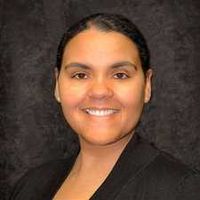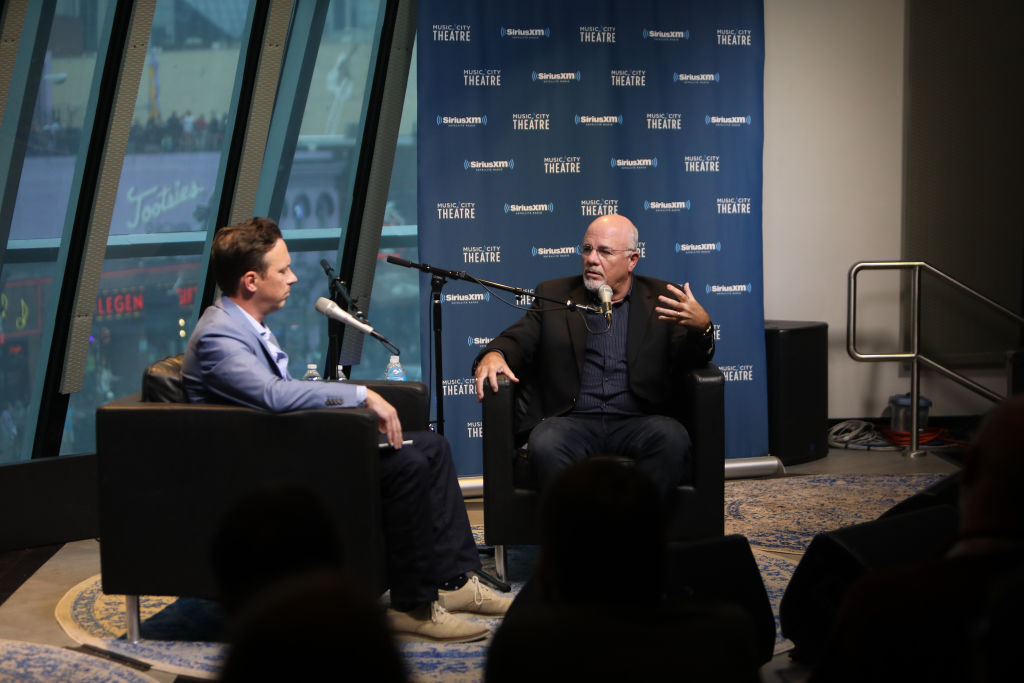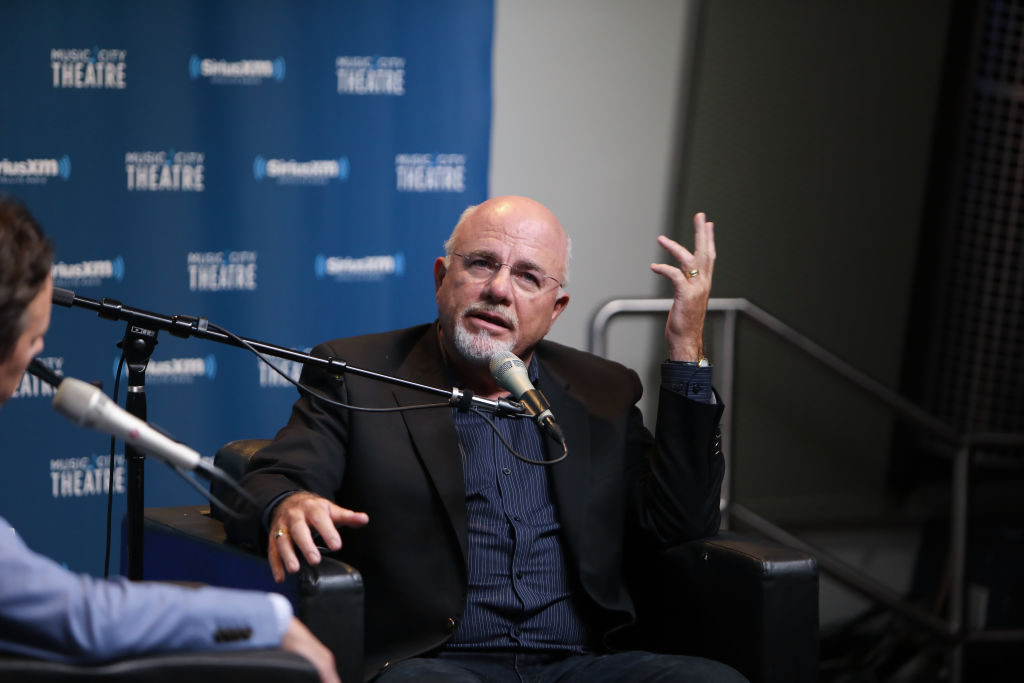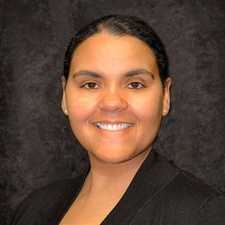What Dave Ramsey and Caleb Hammer Taught Me About Handling Money
From Ramsey’s strict discipline to Hammer’s blunt reality checks, their lessons reveal how to save, invest and prepare for the future.

Profit and prosper with the best of Kiplinger's advice on investing, taxes, retirement, personal finance and much more. Delivered daily. Enter your email in the box and click Sign Me Up.
You are now subscribed
Your newsletter sign-up was successful
Want to add more newsletters?

Delivered daily
Kiplinger Today
Profit and prosper with the best of Kiplinger's advice on investing, taxes, retirement, personal finance and much more delivered daily. Smart money moves start here.

Sent five days a week
Kiplinger A Step Ahead
Get practical help to make better financial decisions in your everyday life, from spending to savings on top deals.

Delivered daily
Kiplinger Closing Bell
Get today's biggest financial and investing headlines delivered to your inbox every day the U.S. stock market is open.

Sent twice a week
Kiplinger Adviser Intel
Financial pros across the country share best practices and fresh tactics to preserve and grow your wealth.

Delivered weekly
Kiplinger Tax Tips
Trim your federal and state tax bills with practical tax-planning and tax-cutting strategies.

Sent twice a week
Kiplinger Retirement Tips
Your twice-a-week guide to planning and enjoying a financially secure and richly rewarding retirement

Sent bimonthly.
Kiplinger Adviser Angle
Insights for advisers, wealth managers and other financial professionals.

Sent twice a week
Kiplinger Investing Weekly
Your twice-a-week roundup of promising stocks, funds, companies and industries you should consider, ones you should avoid, and why.

Sent weekly for six weeks
Kiplinger Invest for Retirement
Your step-by-step six-part series on how to invest for retirement, from devising a successful strategy to exactly which investments to choose.
When I was in college, Dave Ramsey’s voice echoed in my head every time I stood at the checkout line. His words, “You must gain control over your money, or the lack of it will forever control you” were often enough to stop me from buying things I didn’t need, like another pair of shoes.
Instead, I ate rice and beans, lived frugally and focused on one goal: Becoming debt-free. For someone just starting, his strict plan gave me the structure I needed at the time.
More recently, I discovered Caleb Hammer on YouTube. His “Financial Audit” show hooked me with its mix of brutal honesty, tough love and roast-style humor.
From just $107.88 $24.99 for Kiplinger Personal Finance
Become a smarter, better informed investor. Subscribe from just $107.88 $24.99, plus get up to 4 Special Issues

Sign up for Kiplinger’s Free Newsletters
Profit and prosper with the best of expert advice on investing, taxes, retirement, personal finance and more - straight to your e-mail.
Profit and prosper with the best of expert advice - straight to your e-mail.
As a millennial facing today’s challenges — high inflation, rising home prices and the reality of planning for retirement — I now find myself blending Ramsey’s discipline with Hammer’s urgency when working on my finances.
It can be hard to cut through the noise and settle on a strategy that truly works. For years, I thought sticking with one system was enough. But money advice isn’t one-size-fits-all; the right voice often depends on your stage of life.
That’s why I’m exploring how Ramsey’s structure and Hammer’s urgency balance each other, and what their differences taught me about adapting our financial habits as life changes.
It’s not which plan, but having a plan

Both Ramsey and Hammer are intense financial personalities. They’ve each built influence by promoting financial literacy in their own way.
For me, following them is part of my own personal development. I read, watch and learn from diverse voices to stay up to date — without following any single ideology to the letter.
Dave Ramsey has spent decades building an empire through radio and books, and through his company, Ramsey Solutions, which now produces shows, podcasts and financial education resources.
Caleb Hammer has quickly grown a YouTube following through his Financial Audit show, in which he’s built a community of people willing to be brutally honest about their finances.
Their tones and audiences might differ, but their mission is the same: To help people stop making money mistakes.
Today, financial advice is everywhere in podcasts, YouTube shows, TikTok clips and blogs. Some voices feel too rigid, others too gimmicky. Over time, I’ve learned to focus on the ones that fit my stage of life and push me forward without creating more stress than clarity.
For me, that has meant turning to Ramsey's advice when I need to focus on structure and to Hammer's guidance when I need to evaluate my habits and lifestyle.
I took Ramsey’s advice as his way, a single path I had to follow. But as I’ve gotten older, I’ve realized he wasn’t saying it had to be his plan, only that you need a plan.
As Ramsey recently told us, “Winning with money isn’t about age. It’s about behavior. Follow the plan, and you’ll win every time.” That perspective is why his philosophy has endured, even as new voices such as Hammer bring fresh urgency to the conversation.
Building on the basics: From frugality to growth
I’ve always tried to keep an emergency fund, and for a long time, my focus was on living debt-free. That discipline gave me security, but it also meant I wasn’t paying enough attention to retirement.
As costs continued to rise, I realized saving and frugality alone wouldn’t carry me into the future — I needed to shift from simply protecting what I had to making my money work for me.
Over time, I’ve also had to rethink how I approach debt. I’ve never liked the pressure of owing anyone money, and that caution has served me well. But with age and experience, I’ve come to see that not all debt is the same.
Some debt, used wisely and intentionally, can open doors — whether that’s buying a home, investing in education or building long-term security. The key is understanding the trade-offs and refusing to let debt become a way of life.
For me, what started as a survival mindset has evolved into a strategy that strikes a balance between discipline and growth.
As Ramsey points out, “Younger people are more skeptical of debt, which is smart. But they often get impatient and want results fast. Building wealth takes time and discipline. Older generations had more patience but believed debt was a normal part of life. That’s a lie. Debt will always equal risk.”
His perspective underscores what I’ve learned in my own journey: Debt might sometimes be useful, but it’s always something to approach with caution.
Finding balance between fear and opportunity
In the early 2000s, I swiped a credit card at the grocery store and watched my aunt gasp in horror. To her, debt for everyday expenses spelled disaster.
But it wasn’t just the debt — credit cards themselves still felt new, unfamiliar and risky. Handing over plastic instead of cash made her uneasy, as if she were stepping into uncharted territory.
For me, the appeal was different. I wanted the points for my next trip, and I trusted myself to pay the balance off each month. With Ramsey’s warnings in the back of my mind, I kept it under control.
Still, using that card was a vulnerable moment, one that taught me how every new financial tool comes with both risk and opportunity.
Ramsey’s system leaves no room for credit cards, ever. Hammer, though, is less rigid. He’ll call out reckless spending without hesitation, but he allows for responsible credit card use if you’re disciplined enough. His urgency comes from cutting expenses immediately, sometimes even more aggressively than Ramsey would.
A top cash-back credit card can turn everyday purchases into rewards — if you pay your balance in full. See Kiplinger’s top picks for the best cash-back cards, powered by Bankrate. Advertising disclosure.
Rethinking how to invest
The more I watched Hammer, the more I started to question my own investment strategy. For years, I followed Ramsey’s playbook without hesitation: Automatically put 15% of my income into mutual funds, avoid individual stocks and crypto, steer clear of whole life insurance, and never invest until debt is gone. For a long time, that structure worked. It felt safe.
But when the markets dipped, I realized I didn’t fully understand the choices I was making; I was just following rules. It wasn’t enough to manage my daily budget — I needed to take ownership of my entire financial plan.
I could no longer rely on the tried-and-true without questioning it. Hammer pushes people to examine their allocations, confront their habits and focus on behavior before strategy.
Hearing him call out others' blind spots made me stop and take a harder look at mine. Hammer forced me to think beyond rules and start owning the decisions behind my investments.
Rethinking retirement: From structure to ownership

When asked to sum up his philosophy, Ramsey doesn’t mince words: “Live like no one else, so later you can live and give like no one else. Sacrifice now. Get out of debt. Build wealth on purpose. It isn’t magic, it’s common sense.”
For years, that discipline shaped how I thought about retirement. I leaned on the structure Ramsey taught — steady contributions, long-term patience, letting time do the heavy lifting. When my employer offered a retirement plan, I accepted it without question and felt secure.
But after being laid off from my dream job, my perspective shifted. Losing a position with strong benefits and a supportive team was tough, but it forced me to take real ownership of my future.
That’s where Hammer’s tough-love approach hit home. Lifestyle creep had slipped in quietly — streaming subscriptions, online shopping, quick weekend trips I told myself I “deserved.” The truth was, I wasn’t setting myself up for long-term success.
Hammer warns that lifestyle creep, more than anything else, robs people of retirement security. His urgency pushed me to face those habits head-on and start building a retirement plan designed for me and my family, not just one handed to me.
At the same time, Ramsey’s principles provided the guardrails — the discipline and structure that kept me steady — so I could evolve with confidence and begin taking the kind of risks and ownership Hammer encourages.
Two voices, one lesson
What I’ve learned is that building a financial plan isn’t about following one voice to the letter — it’s about taking the parts that work for you and sticking with them, while staying open to change.
Personal finance evolves as life does, and so should the plan you build for yourself. What matters most isn’t whose rules you follow, but how willing you are to adjust along the way.
Related Content
Profit and prosper with the best of Kiplinger's advice on investing, taxes, retirement, personal finance and much more. Delivered daily. Enter your email in the box and click Sign Me Up.

Carla Ayers joined Kiplinger in 2024 as the eCommerce and Personal Finance Editor. Her professional background spans both commercial and residential real estate, enriching her writing with firsthand industry insights.
Carla has worked as a personal finance and real estate writer for Rocket Mortgage, Inman and other industry publications.
She is passionate about making complex real estate and financial topics accessible to all readers. Dedicated to transparency and clarity, her ultimate goal is to help her audience make informed and confident decisions in their financial pursuits.
-
 Quiz: Do You Know How to Avoid the "Medigap Trap?"
Quiz: Do You Know How to Avoid the "Medigap Trap?"Quiz Test your basic knowledge of the "Medigap Trap" in our quick quiz.
-
 5 Top Tax-Efficient Mutual Funds for Smarter Investing
5 Top Tax-Efficient Mutual Funds for Smarter InvestingMutual funds are many things, but "tax-friendly" usually isn't one of them. These are the exceptions.
-
 AI Sparks Existential Crisis for Software Stocks
AI Sparks Existential Crisis for Software StocksThe Kiplinger Letter Fears that SaaS subscription software could be rendered obsolete by artificial intelligence make investors jittery.
-
 One of the Most Powerful Wealth-Building Moves a Woman Can Make: A Midcareer Pivot
One of the Most Powerful Wealth-Building Moves a Woman Can Make: A Midcareer PivotIf it feels like you can't sustain what you're doing for the next 20 years, it's time for an honest look at what's draining you and what energizes you.
-
 I'm a Wealth Adviser Obsessed With Mahjong: Here Are 8 Ways It Can Teach Us How to Manage Our Money
I'm a Wealth Adviser Obsessed With Mahjong: Here Are 8 Ways It Can Teach Us How to Manage Our MoneyThis increasingly popular Chinese game can teach us not only how to help manage our money but also how important it is to connect with other people.
-
 Looking for a Financial Book That Won't Put Your Young Adult to Sleep? This One Makes 'Cents'
Looking for a Financial Book That Won't Put Your Young Adult to Sleep? This One Makes 'Cents'"Wealth Your Way" by Cosmo DeStefano offers a highly accessible guide for young adults and their parents on building wealth through simple, consistent habits.
-
 My Spouse and I Are Saving Money for a Down Payment on a House. Which Savings Account is the Best Way to Reach Our Goal?
My Spouse and I Are Saving Money for a Down Payment on a House. Which Savings Account is the Best Way to Reach Our Goal?Learn how timing matters when it comes to choosing the right account.
-
 We're 78 and Want to Use Our 2026 RMD to Treat Our Kids and Grandkids to a Vacation. How Should We Approach This?
We're 78 and Want to Use Our 2026 RMD to Treat Our Kids and Grandkids to a Vacation. How Should We Approach This?An extended family vacation can be a fun and bonding experience if planned well. Here are tips from travel experts.
-
 My First $1 Million: Retired From Real Estate, 75, San Francisco
My First $1 Million: Retired From Real Estate, 75, San FranciscoEver wonder how someone who's made a million dollars or more did it? Kiplinger's My First $1 Million series uncovers the answers.
-
 To Love, Honor and Make Financial Decisions as Equal Partners
To Love, Honor and Make Financial Decisions as Equal PartnersEnsuring both partners are engaged in financial decisions isn't just about fairness — it's a risk-management strategy that protects against costly crises.
-
 Top 5 Career Lessons From the 2026 Winter Olympics (So Far)
Top 5 Career Lessons From the 2026 Winter Olympics (So Far)Five lessons to learn from the 2026 Winter Olympics for your career and finances.
